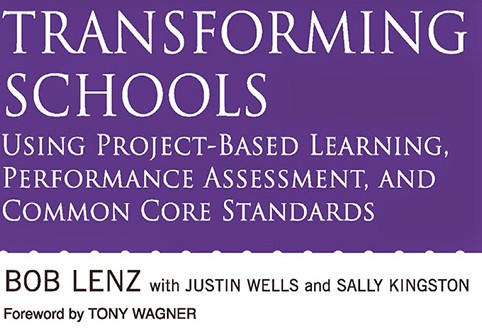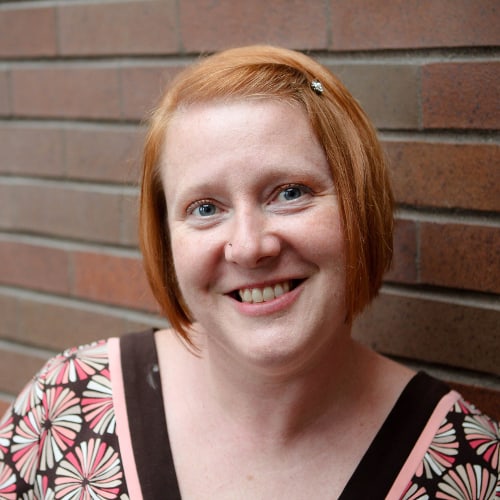Smart Review | Transforming Schools Using Project-Based Learning, Performance Assessment, and Common Core Standards

Reading, at its best, can be subversive and inspiring. Shame on me, but it has been too long since I’ve read anything that combined these two guttural reactions to give me that “knowledge buzz” that is so often the precursor to decisive action. As I read Transforming Schools Using Project-Based Learning, Performance Assessment, and Common Core Standards by Bob Lenz, I started, as I always do, with a pen in hand to scribble in the margins. A chapter in, I added a highlighter, and by the middle of the book, I had started taking notes in my planner. Though my personal teaching circumstances are quite different from the ones that are drawn upon in this book—me in a fairly homogenized suburb and the Envision School in the book with nearly 70% free and reduced lunch and 11% English Language Learners—I felt that the ideas purported to work here are more like universals than a specialized “program” for a definite population.
Tony Wagner, Expert in Residence at the Harvard University Innovation Lab, lays the groundwork for the book in his introduction by clarifying major education issues with a dictum worth repeating:
“Our schools are not failing, as many claim; rather, they are obsolete. We continue to focus far too much time on teaching and testing content knowledge that can be retrieved from the Internet as needed.”
The crux of the matter, simply put, is that knowledge is not the goal of education, but the majority of schools have not recognized that yet.
And then there are Envision Schools. By all accounts, these schools are wildly successful, while being challenged by the same types of problems found in schools everywhere. What’s the difference? In a word, intentionality. There is nothing that is not planned, nothing that is not a crucial part of the learning experience that is being afforded students. There is nothing that is incidental or accidental, from the arrangement of student cohorts and teacher teams to the strategic use of time designed around project-based scheduling. The intentionality is not only for students and structure, but the concept of leading with “holonomy.” Holonomy is the theory that for learning to go deep, the entire organization must work in harmony toward the good of the whole.
Early in the book, Lenz asserts that “deeper learning tells a story,” and the most I learned from reading this book was from the students highlighted in it. The book comes with a DVD featuring videos that show theory in action, the story that gives voice to deeper learning. The beauty of these stories is that they are authentic, with real hurdles and awkward missteps. I was compelled to find out more about these students and the schools themselves, which led me to this March 10, 2015 webinar where Tiana Alba, a student featured prominently in the book, as well as other graduates, reflect on their experiences.
The book is not only a walk through the successful halls of an Envision school, but also a peek of what happens behind the doors of the classrooms, sharing some of the successful strategies used by Envision teachers. Admittedly, the type of teaching and learning that are the backbone of this book are the result of even more intentionality, and not readily transferable to Any-School-USA without considerable planning.
However, I was pushed to think about Project-Based Learning in new ways. For example, Lenz explains:
“It always makes us nervous when we hear of any school, including one of ours, referred to as a ‘project-based learning school.’ It suggests that the goal of the school is to enact learning in one prescribed way. This is dangerous: the doing becomes more important than what is getting done.”
As a teacher who thinks of herself as running a “project-based classroom,” it was a gentle reminder that it is the learning experience that matters most.
My only critique of the book is that at times it feels like you’ve won the resource lottery, and you aren’t sure what to use first. The title foretells this dilemma, taking on PBL, performance assessment, and Common Core Standards, topics that warrant full length books when addressed individually. However, at the center of the book is the impact on students, and those educational topics provide the scaffolding that hold up their stories, not the other way around.
As I read a book, I sometimes jot down the names of friends, family, or colleagues I think should read the book. Oftentimes, I pass it on with a note, “Thought of you. Hope you like it” or something of the sort. I’ll be putting this book in inter-office mail, sending it straight to the top, our superintendent. There’s lots of underlined phrases, “Test scores, numerical school ratings, and statistics on grades are abstractions of reality, not description of reality” and “The Common Core is policy, not pedagogy, and the winds will shift again.” But, I’m going to challenge him to look for our students within the pages, and I think he’ll find them, just as I did.
For more blogs by Amber, check out:
- Project-Based Learning and the Middle School Mind
- What Growth, Innovation and Collaborative Mindsets look like for Students and Teachers
- Must-know Buck Institute Project-Based Learning Resources
Stay in-the-know with all things EdTech and innovations in learning by signing up to receive the weekly Smart Update.



0 Comments
Leave a Comment
Your email address will not be published. All fields are required.